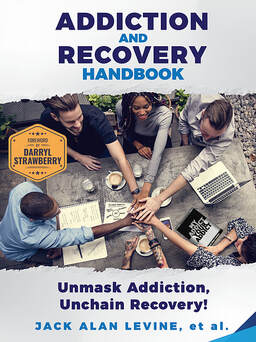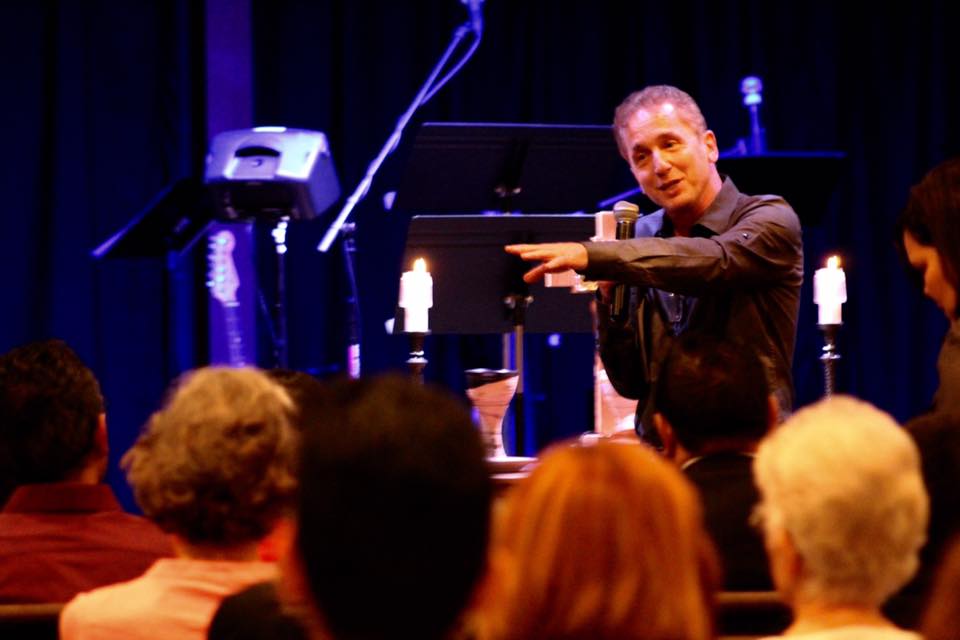New book offers addicts and family members a single resource to help find the best recovery option
For Immediate Release (Coconut Creek, FL) — Since last June, there has been a 20% increase in deaths by drug overdose, the highest number of fatal overdoses ever recorded in the U.S. in a single year. The drug deaths started spiking last spring during the initial shutdowns, and more recent statistics from cities throughout the U.S. and Canada show the crisis has become worse. According to Jama Psychiatry, a study showed emergency room overdose visits increased up to 45% during the pandemic. Author, speaker, pastor, and addiction counselor Jack Alan Levine believes addiction is spiraling out of control for many reasons, and hopes his new book, “Addiction and Recovery Handbook,” will become an important resource to help both addicts and family members find the best solution.
In writing the new book, Levine, who is a recovering addict himself, recruited numerous addiction experts, doctors, therapists, psychologists, and spiritual leaders. Each professional contributed chapters on various issues and provided critical advice and information. “Addiction and Recovery Handbook” features unique programs and resources available for addicts and the families of addicts. The book highlights several different methods and formulas for successful recovery, providing insight, information, and analysis as to the most successful paths. Levine says his goal is to match the best resource to each individual person.
‘With addiction, there are different paths to recovery, but some of them are more efficient and more effective depending on your individual situation,” says Levine. “The key is to match the solution with the person. So rather than the addict and their family just responding to the first voice they hear in their time of crisis, this book offers them facts and insights about multiple recovery techniques so they can determine what would be in their best interest to get the treatment and help they need.”
Contributors to the “Addiction and Recovery Handbook” include Major League Baseball legend Darryl Strawberry; Dr. Jared Pingleton, who has worked for the American Association of Christian Counselors and Focus on the Family; Joe Bryan who runs one of the oldest private rehab centers in the country, as well as other therapists, doctors, Sober Home owners, leaders from Alcoholics Anonymous (AA) and Narcotic Anonymous (NA), Long Term Treatment Operators and a variety of other experts in various treatment disciplines. Levine says it was multiple techniques that ultimately helped him recover from his own addiction.
“For me, a 30-day recovery program helped tremendously as I learned through counseling and therapy why I was an addict,” says Levine. “I always told myself I did drugs for relaxation or to unwind or because I thought they were fun. I learned that I was really using drugs to isolate myself from the things in my life that I perceived consciously and subconsciously were causing me pain. I also benefited tremendously from Alcoholics Anonymous and Narcotics Anonymous. Hearing from others who were struggling was eye-opening, heart-wrenching, and inspiring all at the same time. Most addicts believe they are alone in their battle, but they are not. I believe most addicts are trying to fill the void in our hearts with alcohol and drugs instead of with a relationship with God, so I also benefited greatly from the Celebrate Recovery program.”
While he believes the pandemic did contribute to the skyrocketing addiction numbers, Levine says the shutdowns have only revealed a problem that has been worsening for years.
“Change and uncertainty —two things caused by the Covid 19 pandemic—exacerbate addicts who typically prefer routine,” says Levine. “Many people who may have been holding their addiction in check because of work commitments or other obligations, may have started drinking or taking drugs due to being unable to do other things. Fortunately, the recovery community adapted quickly and went to online recovery groups and therapy sessions. But those are not as effective as being face-to-face. Though these factors contributed to an increase in addiction, we can’t blame it all on the pandemic. Addicts do a good job all by themselves of ruining their lives. We didn't need a pandemic to tell us that. We just need to look at the number of deaths that happen each year as a direct result of alcohol and drug abuse. That’s why we need to find better treatment solutions and, ultimately, a cure.”
In writing the new book, Levine, who is a recovering addict himself, recruited numerous addiction experts, doctors, therapists, psychologists, and spiritual leaders. Each professional contributed chapters on various issues and provided critical advice and information. “Addiction and Recovery Handbook” features unique programs and resources available for addicts and the families of addicts. The book highlights several different methods and formulas for successful recovery, providing insight, information, and analysis as to the most successful paths. Levine says his goal is to match the best resource to each individual person.
‘With addiction, there are different paths to recovery, but some of them are more efficient and more effective depending on your individual situation,” says Levine. “The key is to match the solution with the person. So rather than the addict and their family just responding to the first voice they hear in their time of crisis, this book offers them facts and insights about multiple recovery techniques so they can determine what would be in their best interest to get the treatment and help they need.”
Contributors to the “Addiction and Recovery Handbook” include Major League Baseball legend Darryl Strawberry; Dr. Jared Pingleton, who has worked for the American Association of Christian Counselors and Focus on the Family; Joe Bryan who runs one of the oldest private rehab centers in the country, as well as other therapists, doctors, Sober Home owners, leaders from Alcoholics Anonymous (AA) and Narcotic Anonymous (NA), Long Term Treatment Operators and a variety of other experts in various treatment disciplines. Levine says it was multiple techniques that ultimately helped him recover from his own addiction.
“For me, a 30-day recovery program helped tremendously as I learned through counseling and therapy why I was an addict,” says Levine. “I always told myself I did drugs for relaxation or to unwind or because I thought they were fun. I learned that I was really using drugs to isolate myself from the things in my life that I perceived consciously and subconsciously were causing me pain. I also benefited tremendously from Alcoholics Anonymous and Narcotics Anonymous. Hearing from others who were struggling was eye-opening, heart-wrenching, and inspiring all at the same time. Most addicts believe they are alone in their battle, but they are not. I believe most addicts are trying to fill the void in our hearts with alcohol and drugs instead of with a relationship with God, so I also benefited greatly from the Celebrate Recovery program.”
While he believes the pandemic did contribute to the skyrocketing addiction numbers, Levine says the shutdowns have only revealed a problem that has been worsening for years.
“Change and uncertainty —two things caused by the Covid 19 pandemic—exacerbate addicts who typically prefer routine,” says Levine. “Many people who may have been holding their addiction in check because of work commitments or other obligations, may have started drinking or taking drugs due to being unable to do other things. Fortunately, the recovery community adapted quickly and went to online recovery groups and therapy sessions. But those are not as effective as being face-to-face. Though these factors contributed to an increase in addiction, we can’t blame it all on the pandemic. Addicts do a good job all by themselves of ruining their lives. We didn't need a pandemic to tell us that. We just need to look at the number of deaths that happen each year as a direct result of alcohol and drug abuse. That’s why we need to find better treatment solutions and, ultimately, a cure.”
|
About the author:
Jack Alan Levine has written ten books and is Executive Pastor at Purpose Church in Orlando, Florida. He has served on the Board of Directors at Oasis Compassion Agency, Changed Lives Church, and is the founder of Voice of God Ministry. In addition to other books and resources for addicts, he created the eight-hour online recovery course entitled “Free for Life.” He has shared his insights about addiction and recovery at numerous conferences and organizations such as Teen Challenge, Faith Farm, Iron Sharpens Iron, and Igniting Men, among others. For more information visit www.JackAlanLevine.com. |

